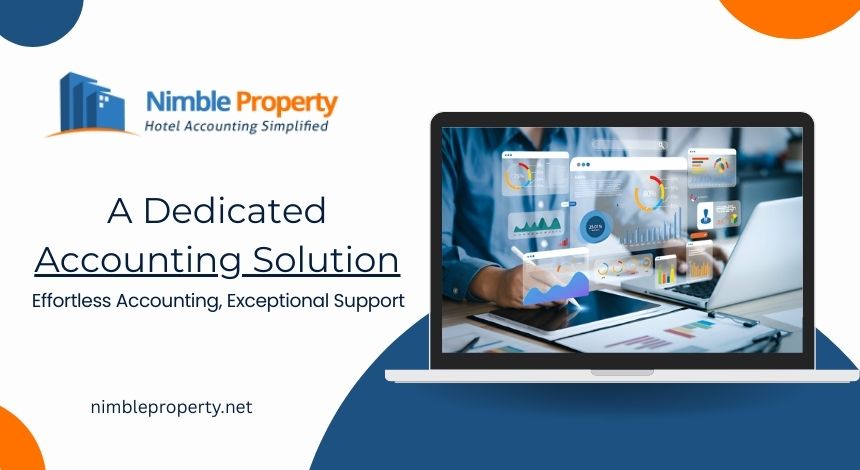Modern hotel management is no easy task. Effective financial management is now more important than ever due to the complexity of guest expectations, fluctuating occupancy rates, and diverse revenue streams. However, a lot of hotel operators still use antiquated manual procedures or general accounting software, which do not meet the requirements of the hospitality sector. Here are some reasons why a specialized accounting solution is essential for every contemporary hotel and how it may address practical accounting issues.
The Practical Issues with Hotel Accounting
1. Handling Various Revenue Sources
In addition to room reservations, hotels also make money from restaurants, spas, events, gift shops, and more. Using a one-size-fits-all approach or manually tracking various streams frequently results in mistakes and inefficiency.
2. Seasonal Variations in Revenue
One characteristic that sets the hotel sector apart is seasonality. Without accurate cash flow forecasting and financial planning tools, it can be challenging to prepare for moments of strong demand while maintaining budget balance during slow seasons.3. Complexities of Labor Costs
3. Complexities of Labor Costs
The biggest portion of hotel running costs is frequently attributed to labor costs, which include salaries, overtime, and perks. The intricacies of workforce management, particularly when working with seasonal or shift-based employees, are not addressed by generic accounting software.
4. Difficulties with Tax Compliance
Maintaining compliance is a never-ending battle due to constantly evolving tax laws and regulations. Due to differing tax laws, hotels that operate in several jurisdictions have even more difficulties.
5. Absence of Current Financial Information
Making decisions requires timely and accurate financial data, but many hoteliers are forced to work with statistics that are out of date. Their capacity to respond quickly to developments in the market is hampered by this absence of real-time insights.
6. Inefficiencies and Manual Errors
Errors are more likely to occur when financial records are managed manually, whether in tax reporting, payroll processing, or revenue reconciliation. Fixing these errors can be expensive and time-consuming.
7. Insufficient Hotel System Integration
Hotels use a variety of technology, including as booking platforms, Point of Sale (POS) systems, and Property Management technology (PMS). The integration features required to establish a smooth financial ecosystem are frequently absent from generic accounting software.
How Are These Issues Solved by a Dedicated Accounting Solution?
1. Making Revenue Management More Efficient
The intricacies of several income streams are managed by specialized hotel accounting solutions. They automatically track and classify income from all sources by integrating with POS and PMS systems, guaranteeing efficiency and accuracy.
2. Improving Forecasting of Cash Flow
Hoteliers can forecast cash flow using sophisticated forecasting capabilities in specialist accounting software by using market trends and historical data. This facilitates efficient planning for both high and low seasons.
3. Labor Cost Optimization
Accounting software designed specifically for hotels make managing personnel budgets easier with features like integrated payroll and labor cost tracking. In order to assist hoteliers in making well informed staffing decisions, they can also offer insights on labor costs as a percentage of revenue.
4. Making Tax Compliance Easier
Tax management tools specifically designed for the hospitality industry are included in hotel accounting software. It ensures cross-jurisdictional compliance by streamlining tax computation, collection, and reporting.
5. Offering Financial Insights in Real Time
Hoteliers have immediate access to key performance indicators (KPIs) such as RevPAR (Revenue per Available Room) and GOPPAR (Gross Operating Profit per Available Room) thanks to specialized solutions that provide real-time dashboards and configurable reports.
6. Cutting Down on Mistakes By use of automation
By doing away with manual data entry, automation lowers the possibility of mistakes in financial records. Everything is streamlined for accuracy and efficiency, from creating financial statements to reconciling accounts.
7. Smooth Hotel System Integration
Dedicated solutions create a single platform for managing hotel operations and finances by integrating easily with POS, PMS, and other systems. In addition to saving time, this integration guarantees uniformity across all data points.
Advantages of Purchasing a Specialized Accounting Solution
1. Increased Operational Efficiency: By automating repetitive operations, employees have more time to concentrate on strategic planning and visitor delight.
2. Improved Decision-Making: Hoteliers may make data-driven decisions that increase profitability with the help of real-time analytics.
3. Cost Savings: Over time, specialized accounting solutions help businesses achieve considerable cost savings by streamlining procedures and cutting down on errors.
4. Improved Compliance and Security: Hotels are shielded from fines and breaches by strong compliance features and data security safeguards.5. Scalability: As your hotel grows, a dedicated accounting solution can scale to meet the increasing complexity of your operations.
Conclusion
In today’s fast-paced hospitality industry, relying on generic tools or manual processes is no longer sustainable. A dedicated accounting solution is not just an expense but a strategic investment that drives efficiency, compliance, and profitability. By addressing the unique challenges of hotel accounting, these tools empower hoteliers to focus on what truly matters: delivering exceptional guest experiences.
Ready to take your hotel’s financial management to the next level? Explore dedicated accounting solutions tailored to the needs of modern hospitality businesses today.

